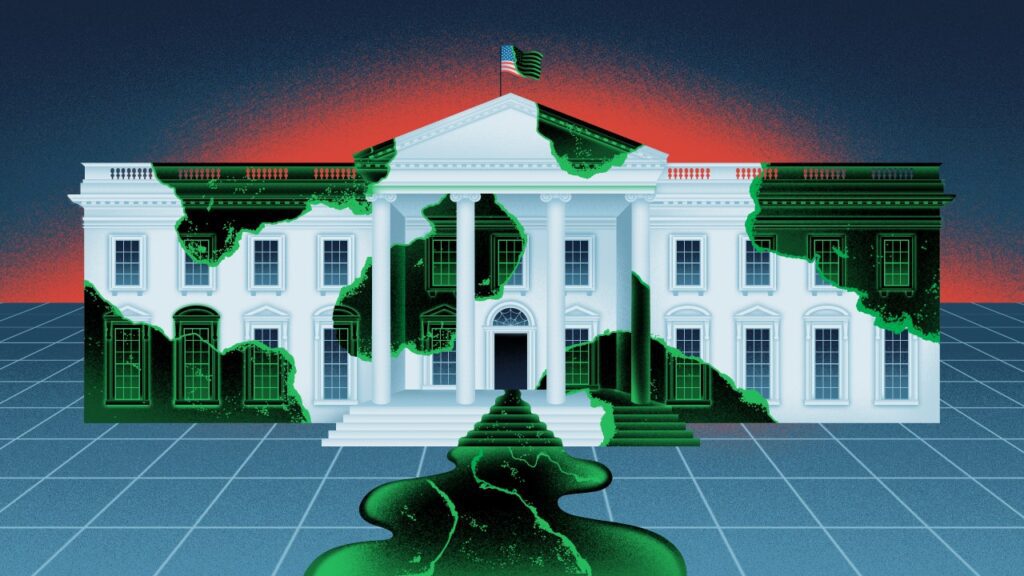Elon Musk’s Vision for Government Efficiency: Is It AI’s Time to Shine?
Not too long ago, many in the American public might have thought that Elon Musk’s initiative, dubbed the Department of Government Efficiency (DOGE), was simply a high-profile attempt at government streamlining. After all, Musk is the same mastermind behind Twitter’s (now X) dramatic staff reductions. The expectation was that he would adopt a similar approach to reduce bureaucratic bloat. However, recent developments suggest Musk’s ambitions with DOGE stretch far beyond mere cuts—he’s aiming to embed his technological vision deep within the U.S. government.
A New Kind of Leadership
To oversee his ambitious agency, Musk recruited a group comprising tech-savvy individuals, many of whom have little experience beyond internships at his own SpaceX. These individuals quickly began questioning long-standing federal practices. Reports emerged of them interfering with payment systems at the Treasury Department, dissecting government budgets, and actively hunting for budget cuts. To fuel these endeavors, DOGE embraces a host of cutting-edge artificial intelligence tools. For instance, Thomas Shedd, a former Tesla engineer turned deputy commissioner at the Federal Acquisition Service, recently announced an “A.I.-first strategy” at the General Services Administration, with plans for a chatbot designed to analyze contracts. At the Department of Education, the use of A.I. to pinpoint potential budget cuts has also been making waves.
Interestingly, some anecdotes suggest that A.I. tools might even be blocking government grant proposals containing terms like "climate change" and "gender identity." One government insider encapsulated the shift succinctly, stating, “Everything that can be machine-automated will be,” indicating a shift from human bureaucrats to automated technocrats.
A Bold New Era: AI in Government
In many ways, the U.S. government is now functioning like a fast-paced A.I. startup, with Musk at its helm—a billionaire with a penchant for futuristic projects. While he’s not alone in pushing the narrative that A.I. is poised to be a societal savior, his strategies intertwine governmental authority with Silicon Valley ambitions in unprecedented ways. Just recently, Musk led a staggering bid of nearly $100 billion to acquire OpenAI, potentially positioning himself against rivals like Sam Altman, CEO of OpenAI.
This unprecedented integration of technology into federal governance raises critical questions. Several agencies have ceased operations under DOGE, including the U.S. Agency for International Development, which managed vast foreign aid programs. This absence creates a void that, rather than being filled by experienced federal employees, appears to be taken over by machine-driven decisions influenced by a small group of elites.
The Risk of AI Rule
While some policy decisions are already being influenced by A.I., the Musk-led initiative aims to take things a step further, potentially sidelining democratic processes in favor of machine-generated decisions. Musk’s approach freezes human judgment and replaces it with algorithmic outputs that lack the subtleties necessary for governance. Just last month, his claims about the violation of Congressional approval by “career Treasury officials,” based solely on an A.I. generated assertion, highlighted the current risk—the consequences of which are still being hotly debated.
Musk’s strategy could resonate deeply with certain American factions, especially amidst the backdrop of international competition in A.I. development. Recent developments in foreign A.I. technologies have spurred the drive for more robust and aggressive A.I. development in the U.S., a sort of tech race reminiscent of previous historical contests.
The Implications of Musk’s A.I. Vision
As Musk develops a government increasingly reliant on A.I., he risks establishing a regime where decisions are made without human oversight, thus potentially creating an undemocratic “deep state” led by technocrats. It is vital to remember that the A.I. tools currently in use have not been fully optimized and can produce misleading results—even suggesting erroneous statistics during major televised events like the Super Bowl.
As we stand at this crossroads, it’s crucial to consider Musk’s aims within the wider context of societal improvement and progress. While some tech advocates see automation and A.I. as monumental steps forward, the day-to-day implications of such advancements on ordinary Americans—especially concerning entitlements like Social Security—could be profound and sometimes troubling.
The AI Buzz Hub team is excited to see where these breakthroughs take us. Want to stay in the loop on all things AI? Subscribe to our newsletter or share this article with your fellow enthusiasts.




